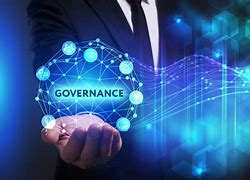ESG refers to Environmental, Social, and Governance factors. It matters because it helps businesses manage risks, attract investors, foster innovation, and enhance long-term sustainability.
ESG practices can drive operational efficiency, enhance brand reputation, attract and retain talent, mitigate risks, and improve financial performance.
An effective ESG strategy includes clear goals, stakeholder engagement, robust governance, comprehensive risk management, and transparent reporting.
ESG reporting focuses on non-financial aspects such as environmental impact, social initiatives, and governance practices, complementing traditional financial reporting.
Key ESG metrics vary by industry but often include carbon emissions, diversity ratios, employee turnover, community engagement, and board diversity.
Tailoring involves understanding industry-specific challenges, regulatory requirements, stakeholder expectations, and aligning ESG strategies with company goals.
Challenges include data availability, stakeholder alignment, resource allocation, setting meaningful targets, and balancing short-term costs with long-term benefits.
ESG practices can enhance shareholder value by reducing risks, improving brand image, attracting socially responsible investors, and fostering long-term growth.
ESG helps identify and mitigate various risks such as regulatory, reputational, operational, and supply chain risks, contributing to the company's long-term sustainability.
Examples might include companies implementing renewable energy projects, enhancing diversity initiatives, implementing ethical supply chain practices, etc.
Success can be measured through improved ESG ratings, stakeholder feedback, cost reductions, increased employee satisfaction, and positive brand perception.
We offer tailored consulting, training programs, strategy development, ESG framework implementation, and ongoing support to navigate the transition smoothly.
Yes, compliance might involve adhering to GRI, SASB, TCFD, EU NFRD, and other regional regulatory frameworks based on the company's location and industry.
We analyze your company's goals, values, and operational context to develop an ESG strategy aligned with your mission and vision, ensuring synergy.
We offer workshops, educational materials, online resources, and hands-on training sessions tailored to various teams to facilitate understanding and implementation.





